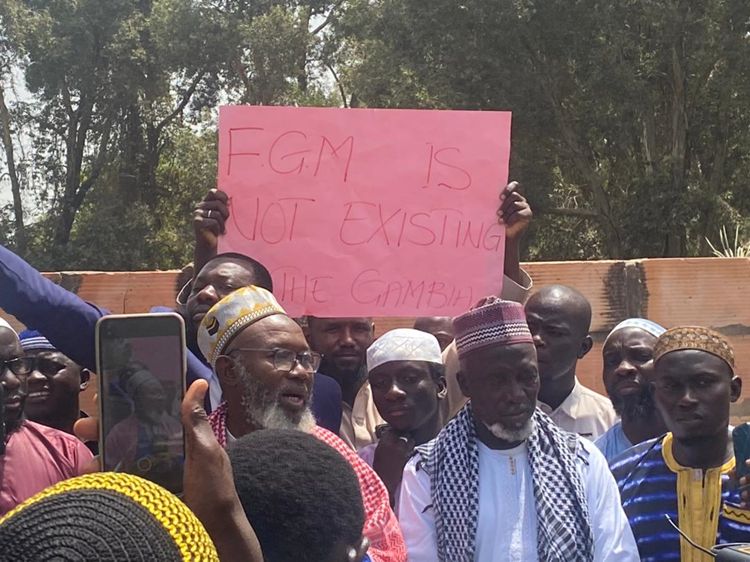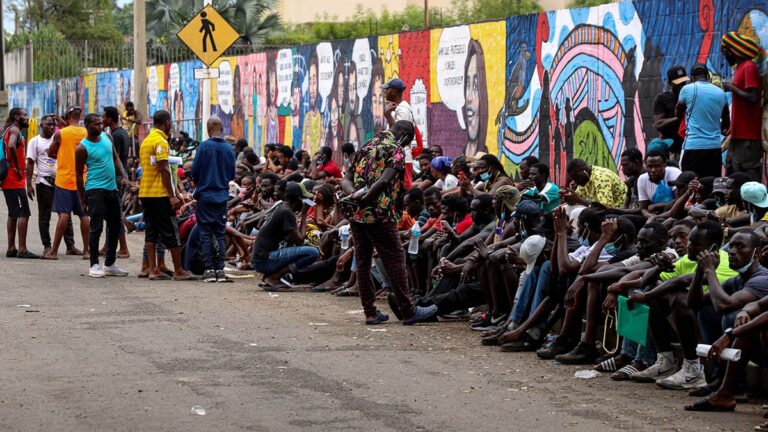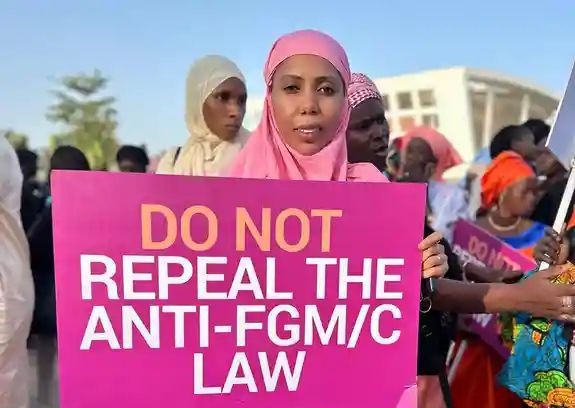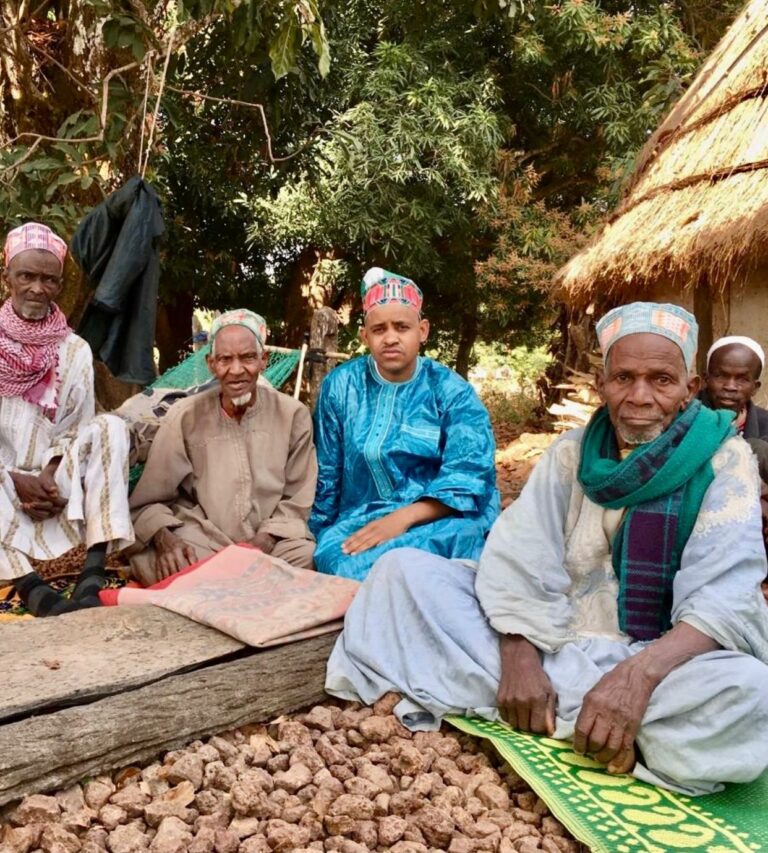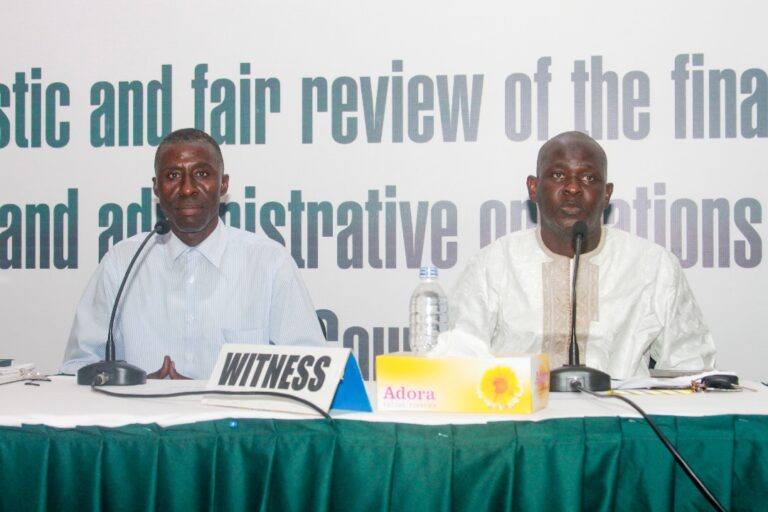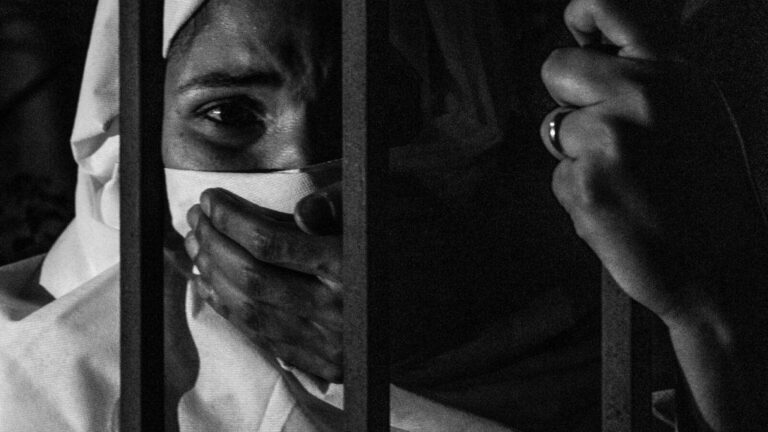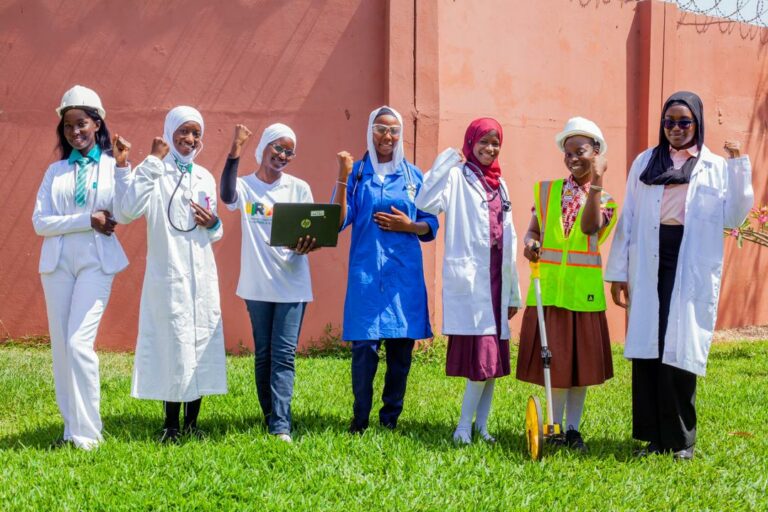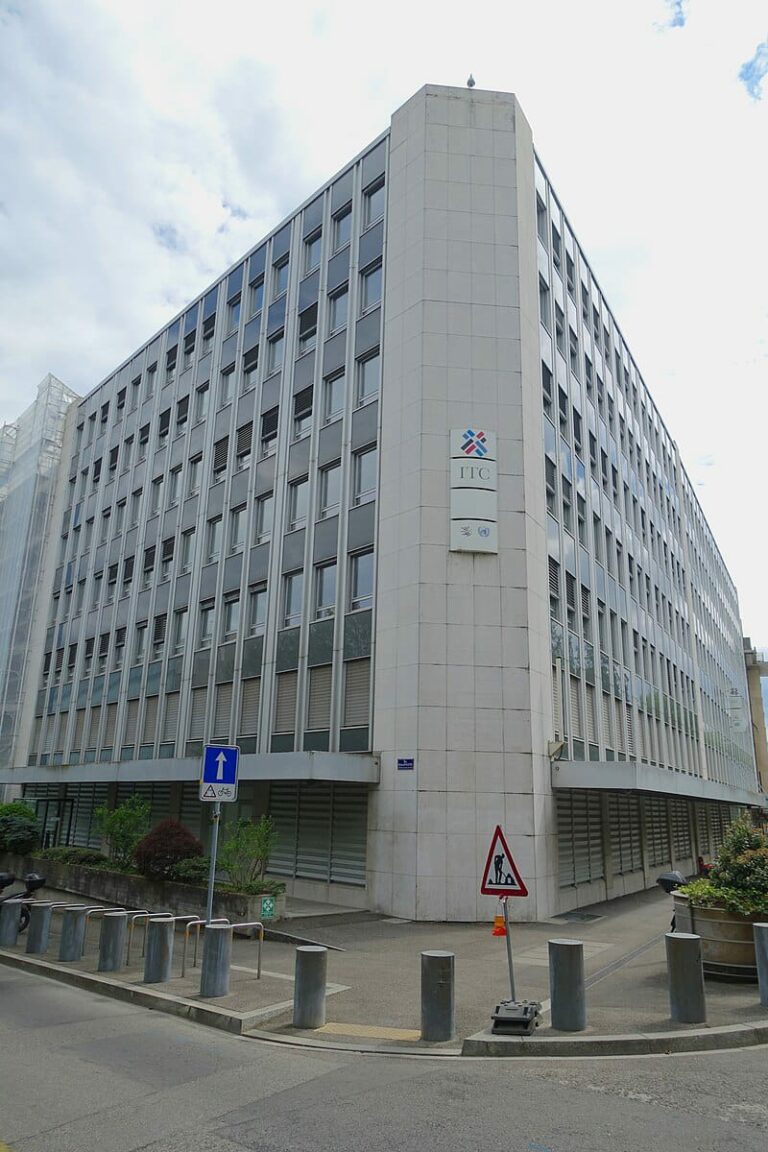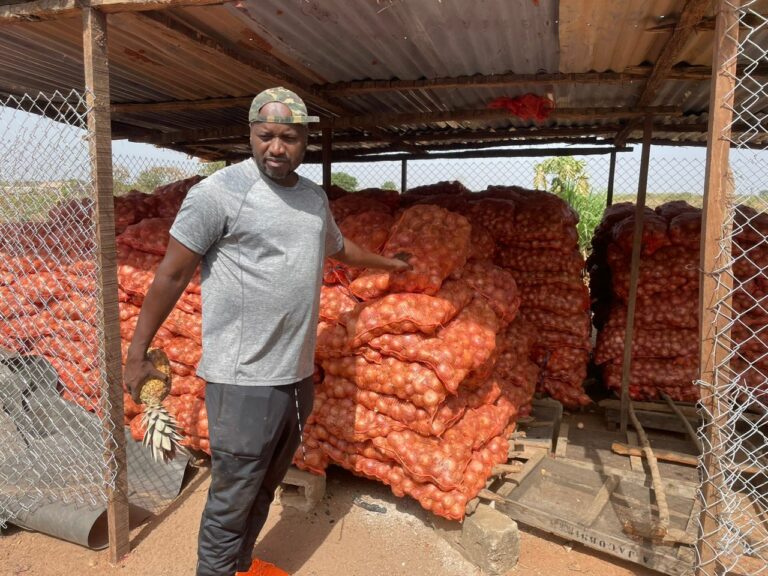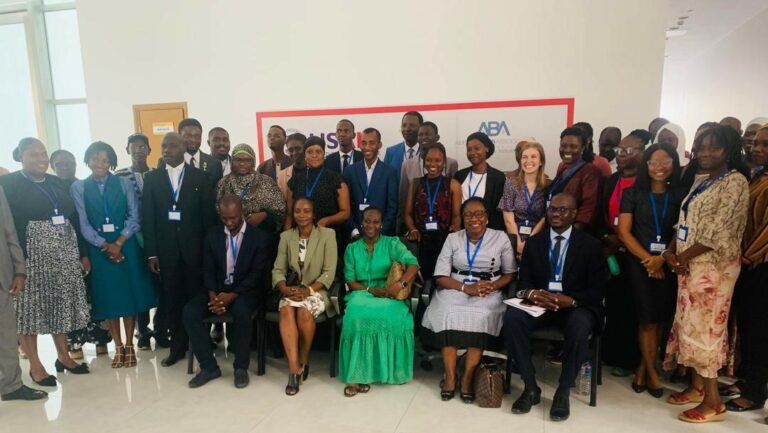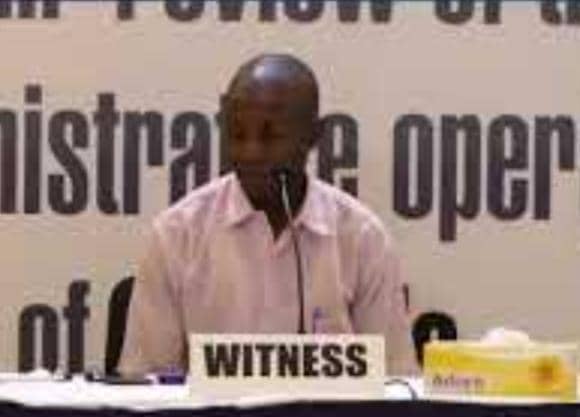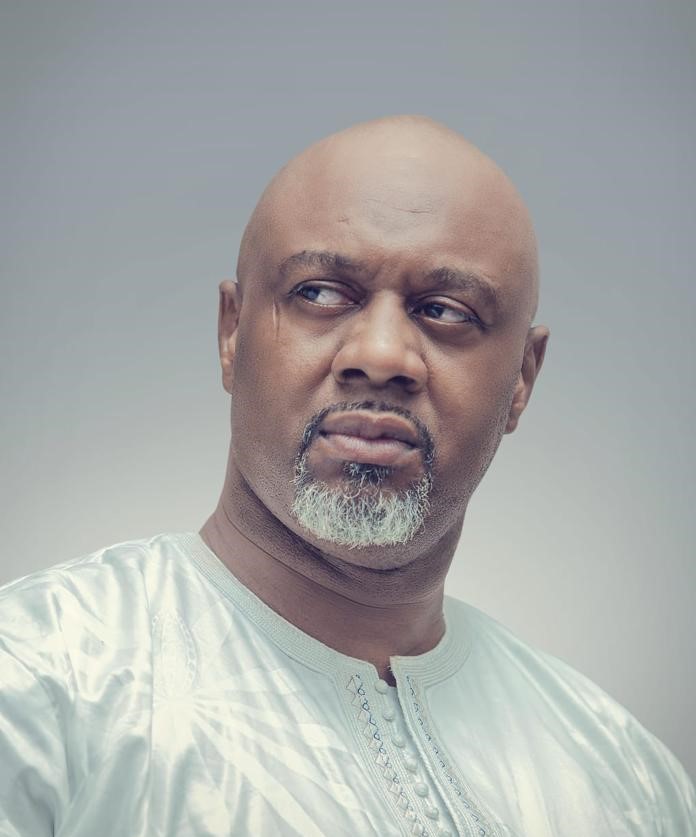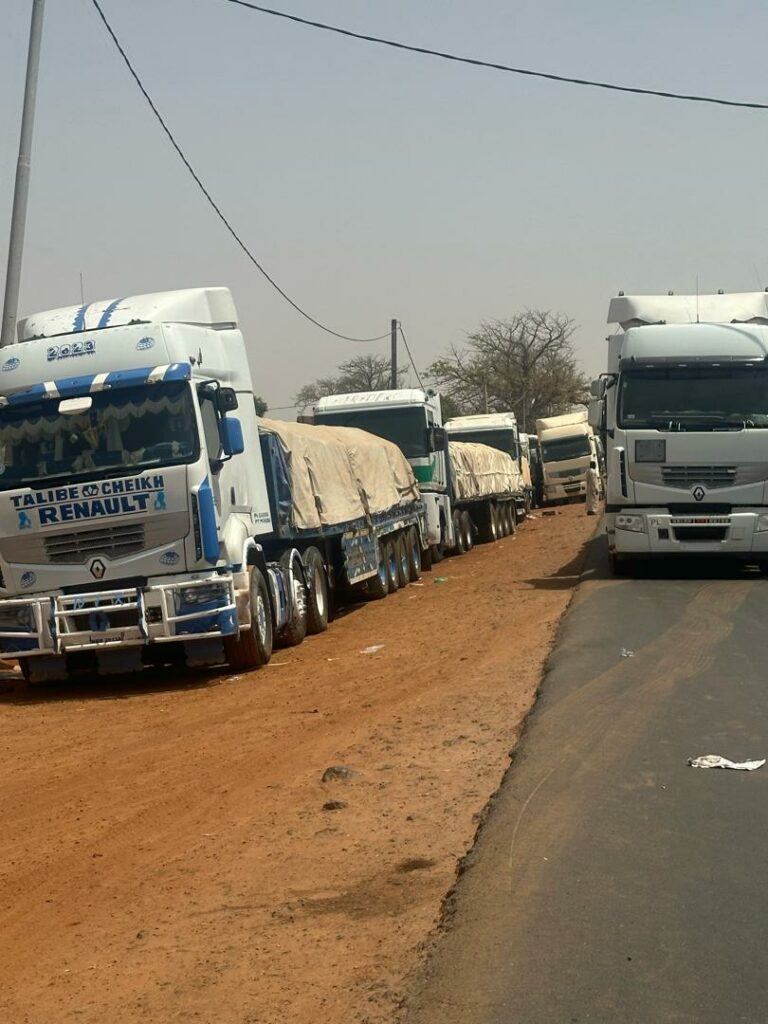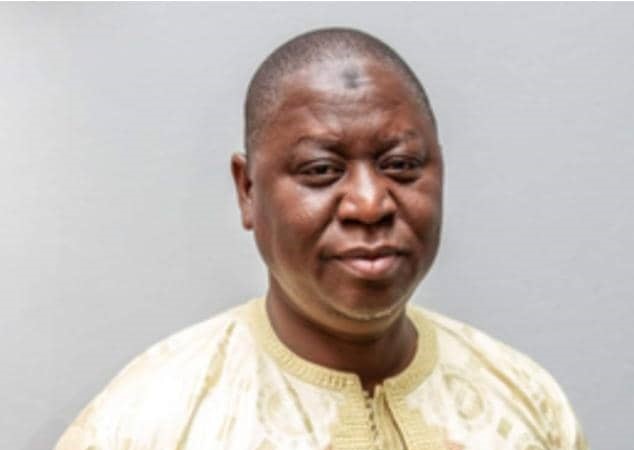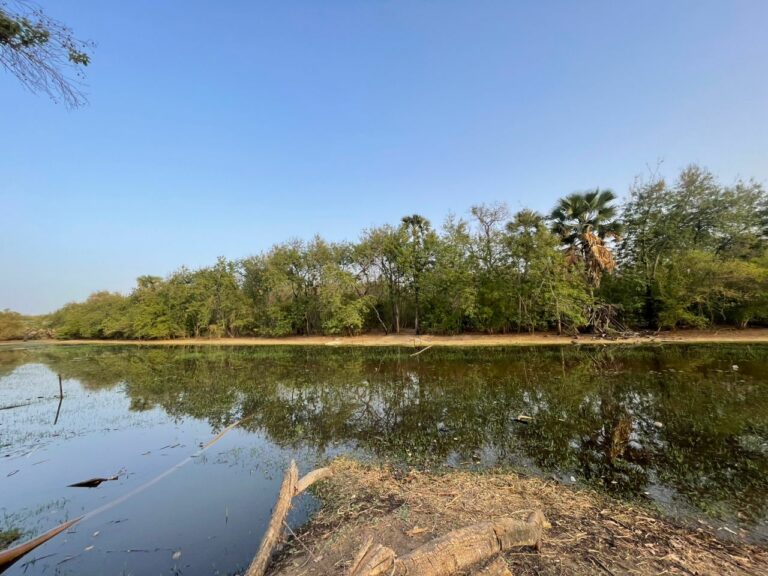Alieu Fatty is a student at the Ahmadiyya International University of Theology and Scholastic Science Ghana.
Serving humanity is an act which transcends beyond all barriers of language, tribe, religion, race, nationality, and cultural differences. Serving others merely requires one to be kind and recognize the dignity in doing so, as Mahatma Gandhi rightly said, “The best way to find yourself is to lose yourself in the service of others.”
Moreover, service to humanity might just require offering the smallest acts of service to others in their most crucial time of need. Whether it is by giving a glass of water to a thirsty person or removing harmful objects from public space; such acts might be small in nature but have the potential to leave lasting and profound imprints of gratitude in a person’s heart.
Serving others is a way of enriching one’s soul in many ways, there is a sense of satisfaction, serenity, love and greatness in serving others.
In fact, offering service to humankind is an integral aspect of the teachings of the founders of all religions that echo in the world today. It stands as one of the most important teachings taught by all prophets, making faith and serving humanity inseparable.
From May 24th to May 26th, 2024, the Ahmadiyya Muslim Jama’at in The Gambia, one of the oldest religious organizations in the country, will hold its 46th annual Jalsa Salana at Nusrat Senior Secondary School. The conference attracts scores of participants from all backgrounds, religious and non-religious, politicians, civil society groups, and all stakeholders across the country and beyond.
The speeches at the conference will address some of the most complex yet crucial topics in the country and the world at large, including injustice, terrorism, inequality, human rights, education, and the need to address irreligiosity in the world.
Furthermore, the conference serves as an opportunity to encourage selfless service to fellow beings through volunteerism.
Allah the Almighty states:
O people of Islam, “You are the best people ever raised for the good of mankind because you have been raised to serve others; you enjoin what is good and forbid evil and believe in Allah” (3:111)
Elsewhere Allah the Almighty states:
“And do not forget to do good to one another” (2:238)
In this verse, Allah the Almighty admonishes Muslims that as long as they instil in themselves the enthusiasm to serve others while promoting and bearing in mind the welfare of society, they will remain the best people. Otherwise, they cannot claim to be the best people.
Now, serving humanity underscores the importance of exhibiting a few very fundamental qualities, i.e., developing a passion to serve mankind, which are as follows: displaying sympathy and love for humanity, kindness in our hearts towards others, a charitable disposition, humility, honesty, a thirst for knowledge, a desire to share knowledge with others, and a constant desire to strive in the cause of Allah by doing good.
The founder of the Ahmadiyya Muslim Community, commenting on this verse, emphasized the need to inculcate compassion for mankind. He stated:
“Sympathy for all mankind is a moral obligation and a duty (Arbaeen)…that religion is no religion which does not inculcate sympathy, nor does that man deserve to be called a man who does not have sympathy in him” (message of peace).
He further stated:
“The teachings of the Holy Qur’an can be divided into two major categories. The first being unity of God, love and obedience to Him. The second is to treat kindly your brothers and fellow beings…be kind and merciful to humanity…always work for the good of mankin.”
Throughout history, every prophet who has graced the world has imbued their followers with the profound conviction that the spirit of serving one’s fellow beings is a religious imperative.
The Promised Messiah (as) expounded upon this timeless truth:
“According to the true spirit of the teachings of Islam there are only two parts of the religion, or it can be said that the religion is based on two paramount objectives. First of all is to recognise the One God with absolute certainty and sincerely to love Him and to submerge yourself entirely in His obedience, as per the demands of love and submission. The second purpose is to serve His people and to utilize all of your capabilities and faculties in the loving services of others and to always show sincere gratitude to whoever is kind to you and to favor them in return, whether they be your monarch or ruler whether they be the most simple and humble of people. And you should keep always a loving bond with them.”
The services that the Ahmadiyya Muslim Community renders to humanity worldwide are underpinned by our religious beliefs, emphasizing the fulfilment of the rights of fellow beings as an obligation following the fulfilment of the rights of God the Almighty. Just as the founder of the community expressed his earnest desire to always render services to mankind.
میرا مقصود و مطلوب و تمنا خدمت خلق است ہمیں کا رم ہمیں بارم ہمیں رسم ہمیں ر ا ہم
“My purpose, yearning and heartfelt desire is to serve humanity.
This is my job, this is my faith, this is my habit, and this is my way of life”


